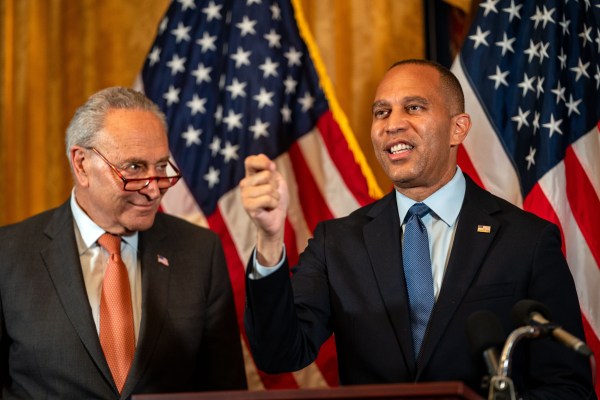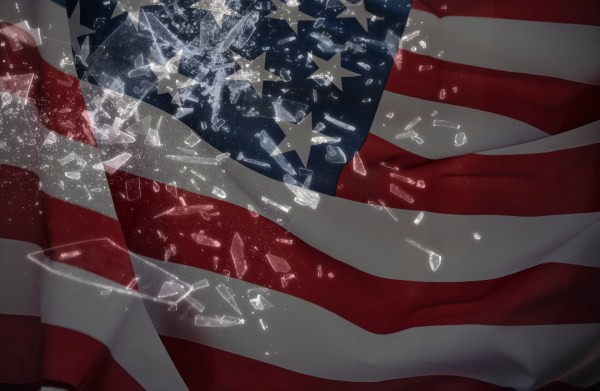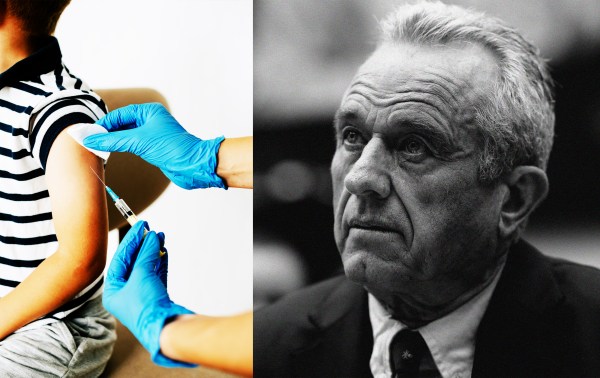Happy New Year!
I’m not early. I’m not late. I’m right on time.
For a certain kind of person—and I am one such—the real new year is the first day of school. I haven’t been a student in a long time, and I haven’t been a teacher in a good long while, either. Although I’m in my 50s, I keep meaning to head down to Austin for a semester and take that freshman writing seminar UT says I need to graduate. (And, no, they wouldn’t accept any of the substitutes I suggested, such as a note from my agent or my publisher or a testimony from the provost of the college at which I taught writing.)
My children are not yet of school age either (there is bold talk of homeschooling), but my interior life remains connected to the academic calendar—which was, once upon a time, also the Christian calendar: Michaelmas term, Hilary term, Trinity term, etc. Of course, it varies from institution to institution and from community to community, but sometime around the first day of September, there is a feeling of newness and possibility—one that remains, for me, at least, much stronger than the feeling of January 1.
I suspect that one feels this a little more intensely growing up in West Texas, where the school year remains intricately linked to the religious calendar (not the Christian one—I mean high school football season), and where the first hint of fall weather is a whisper of respite from the relentless punishment of the hot and dry Llano Estacado summer. Texas at large can be very funny about autumn: It doesn’t get very cool in Houston, at least not very often, but if it is below 60 degrees, you’ll see ladies in furs swanning around River Oaks in the winter sunshine. (You can bet their husbands are still wearing shorts and golf shirts.) In the high country (Amarillo is at 3,662 feet elevation), you get real winters, the joke being that the only thing between the Panhandle and the North Pole is 40 strands of barbed wire. I remember my father having to pull the car off the road in the 1980s due to a blizzard, the snow coming down so hard he couldn’t see the road. Seasonal shifts matter more in places where you have actual seasons.
I am one of those people who liked high school. I had a pretty good time in high school. I went to a good one—academically, it was much more demanding than college was—and if there was a lot of that John Hughes-movie cruelty and anxiety going on, I didn’t know much about it. I had a pretty good time in college, too (too good a time, I suppose: see above), but I don’t see how anybody avoided doing so. I used to think that I really liked Austin, and I do—Austin’s fine—but what I really liked was being 20. Other people have other experiences.
There are times when I suspect that one’s experiences in high school and/or college are even more formative than the clichés all hold. The observation is not original to me by any means, but I think there is something to the conservative observation that about 94 percent of modern American progressivism amounts to trying to re-create the undergraduate experience for Americans on the north side of 25: subsidized housing, subsidized meals, subsidized health care, no real sense of urgency when it comes to working on anything that doesn’t interest you and offer you psychic rewards, a dean of students who will expel anybody who says or does anything that hurts anybody’s feelings, diversity quotas up front and ruthlessly enforced homogeneity on the backside. But there’s a little more to it than that, and not everybody who remains attached to the academic sensibility turns out to be on the political left.
I do suspect, however, that people who were happy in school are more trusting of modern institutions and less irritated by the most institutional sensibility than are people who hated school or who were never much attached to an educational organization. Freud wrote about mourning for the perfect family that one can never actually have, and perhaps there is a kind of similar mourning for the idyllic, care-free student life that few, if any, of us ever got to enjoy. There’s a reason Ralph Lauren has made so much money selling community-college graduates his sundry sartorial fugues on the themes of New England prep-school aesthetics and Ivy League sporting life. I have, in recent memory, had to stop myself from buying a rowing blazer.
Of course, college was infantilizing, too—in some ways, more so than high school. My high school had an open campus, and I do not believe I had ever actually set foot in the cafeteria until my 25-year reunion. If you were a diligent student and didn’t make trouble, teachers would more or less let you come and go as you liked. College was, in my experience, more of an assertive welfare state. I remember being amazed, gratified, and just a little bit offended when I learned that an Austin taxi driver would take you home—or almost any place other than a bar—no questions asked, if you showed him a University of Texas student ID. (UT paid the local taxi company a lump sum for this service.) Most public transit could be used for free (“free,” you know, another lump-sum payment) with a student ID. It was good that there would be fewer students driving drunk or tempted to drive drunk, and that students who lived in far-flung neighborhoods didn’t have to budget for bus fare every week. But there was something chafing about it, too.
And I do sometimes wonder if that isn’t really a big driver of the two very different tribes of American political and cultural life: the kids who liked school and the ones who didn’t. By the former, I don’t mean only the ones who were good at school, or that the ones who were good at school are exclusively in that camp. Peter Navarro, Donald Trump’s recently incarcerated trade guru, is an absolute crackpot—but he does have a doctorate in economics from Harvard, so he must have been pretty good at school. He is, however, like most Trumpists, thoroughly an anti-institutionalist. Kamala Harris is academically undistinguished, but you get the feeling that she felt pretty comfortable at Howard and Hastings—she has the look, affect, and voice of an assistant dean of students (which is to say, those of a jumped-up kindergarten teacher) along with the very soul of a vice principal. The tribe of people who were happy at school produces the likes of Ezra Klein (his father was chairman of the math department at UC-Irvine) and Elizabeth Warren, while the tribe of people who hated school produces the likes of the late Rush Limbaugh and Donald Trump, two graceless and friendless harrumphers who had adjacent private-jet parking and believed that their “instincts” (Trump is always going on about his “instincts”) and common sense not only were workable substitutes for formal education but superior to it. Limbaugh was a college dropout and Trump holds an Ivy League undergraduate degree, but they ended up in the same place (Palm Beach) with the same kind of sensibilities.
William F. Buckley Jr. used to say that he was conservative but not a conservative: “I feel I qualify spiritually and philosophically as a conservative, but temperamentally I am not of the breed.” He once despaired that it seemed as though half of National Review’s readers lived in Arkansas, and his reading habits—devoted to the New York Times—scandalized some of his more populist friends and cooperators. As Michael Lind put it:
The embittered libertarians and far-right “paleoconservatives” … denounced Buckley as an opportunistic social climber who had abandoned his earlier principles to hobnob with Truman Capote, Bill Blass and David Bowie. My own judgment is that Buckley’s gradual, lifelong move to the center was sincere. … He told me confidentially that he had angered his friend President Reagan by arguing that the Reagan budget cut too many benefits for the poor. He supported the decriminalization of marijuana. He made a juvenile joke about tattooing gay men with AIDS to warn their partners, but he also hosted civil debates about gay rights on “Firing Line.” In 2004 he conceded that “federal intervention” had been necessary to destroy Jim Crow. He opposed the Iraq War. Many on the right believed that the older Buckley, like his friend Barry Goldwater in his old age, had gone soft and betrayed the cause. By the standards of today’s radical right, they had.
Unlike Buckley, I am not a major character in this story. But even in my much-less-cosmopolitan life, I feel some of the same tension. I am sure that if you drew a Venn diagram of everything that I want politically and everything that Mike Johnson wants politically, there would be a lot more overlap than I’d be comfortable with, even though I wouldn’t piss on him if he were on fire. On the other hand, I have friends at places such as MSNBC and the New York Times, and I enjoy spending time with them irrespective of any political differences. That’s just me, living a pretty low-key life far from Washington and Manhattan. I imagine that this must be much more intense for a genuine creature of the Ivy League such as Ted Cruz (Princeton, Harvard Law), which I suspect must explain in no small part why he and others like him seem like such obvious phonies. George W. Bush (Phillips Academy, Yale, Harvard Business School) was on his father’s side descended from the nonpareil line of Great American Institutionalists, and, as governor of Texas, he mostly acted like it—whereas, as a presidential candidate, he did what so many Texas politicians do and tried to howdy us all into submission. Rick Perry, another educated and cosmopolitan man, did the same thing when he was running for president, until he finally wised up, taking off the boots and putting on the wingtips.
The tribe of people who liked school produces insufferable snoots, of course, and I fall into that from time to time. I am not proud of the fact, but there is a part of me that understands the inconveniences of air travel (for example) as an unfortunate situation in which the people who did all the assigned reading get held hostage by the people who didn’t. Lots of bureaucracy—public sector and private—gives me the same feeling: It is the revenge of the back row against the front row.
That may not seem like it has anything to do with politics—and aren’t we supposed to be talking about politics here on the cusp of autumn?—but I think it does. Our understanding of the world isn’t made up of white papers and Wall Street Journal editorials, Economist reports and podcasts from The Dispatch. It is made up of all of the encounters we ever had and the memories, however faded, of how we felt about those encounters and the people on the other side of them. I liked school and was good at it, I liked my teachers and wanted to please them, and one is naturally inclined to keep doing the things for which one is rewarded. Other people felt unfairly judged or shortchanged, bullied or ignored, or simply that their time was being wasted on things that were not important to them. There is a reason that so much of our politics—particularly in the current populist moment being expressed in different but similar ways on left and right—ends up feeling like a kind of weird, embarrassing, far too public therapy session.
Of course it must be the case that high school never ends. Life was like high school long before there was any such thing as high school: Human social life is a never-ending competition for status against a background of economic and sexual anxiety, and some of those things are felt more intensely by teenagers, who have not yet learned to guard themselves effectively against feeling them too much. One of the benefits of an education in art, literature, and religion is that it provides the means to put some of that in perspective and to make us more aware of how primitive so much of our longing and driving turn out to be, sophisticated as our pretenses sometimes are.
Our town had its first day of school in mid-August, which is too early, in my view. You need that promise of autumn to really think—it is difficult to have a clear mind if it is 91 degrees outside and humid, if the lightning bugs are still out at night. You want to be looking forward toward November, not backward toward July. But do you know what we’re going to be doing on the big day in November that everybody is talking about? Working out the same things that the kids here are groping their way through on the first day of school. Like the official New Year in January, the unofficial new year on the first day of school is full of false promise. It’s always the same lie: This will be the year that everything changes.
But nothing really changes. It never has.
Words About Words
I suppose I could do this once a month for the rest of my working life, but: I have been asked—by an editor, so it’s almost an assignment!—to revisit begging the question, because it is used wrongly so consistently.
So:
To beg the question is not to raise the question or to invite the question. So you would not want to write: Planning an outdoor wedding in June begs the question of what kind of weather we should expect. Or: Deciding to buy your teenager his first car begs the question: Which car is best for a young driver?
No, no, no. To beg the question is, depending on how you look at it, either a rhetorical gambit or a logical fallacy (or both!) in which an argument is presented in a way that assumes the truth of the point being argued. For example, you might write: David French is wrong in his assertion that conservatives should support Kamala Harris, because conservatives’ political interests are better served by electing Republicans. The part after because is question-begging, i.e., it assumes as true the very thing being debated. French has argued that conservatives’ interests would be better served by electing Harris in November rather than Donald Trump, both in the long term (by reducing the influence of Trump and Trump-ism on the GOP and on the right more generally) and in the short term (because Harris has more sensible views on a few important issues, such as Ukraine). It may be the case that you think conservatives would be better off electing Republicans, but French thinks otherwise—and, if you want to argue the case against him, then you have to argue the case against him. Otherwise, you are simply begging the question.
In Other Wordiness …
My friend Jonah Goldberg often describes simplistic political analysis as “a drunk looking for his car keys under the street light, not because that’s where he lost him but because the light is better there.” The image is proverbial. But I recently emailed him a question: “Shouldn’t we be happy that the drunk is looking for his keys where they aren’t? We don’t want the drunk to find his car keys, do we?”
Also revisiting some earlier “Words About Words” material, in light of an internal Dispatch discussion: to flounder is to flop around like a fish; to founder is to fill up with water and sink or, by analogy, to become bogged down in insurmountable problems. Peace talks could flounder, I suppose, but, normally, they founder.
In Other News …
I hope you all have been enjoying the Dispatch–Bulwark spat as much as I have. (Though nobody has been enjoying it as much as Nick Catoggio has.) The fundamental issue is a disagreement about how much advocacy journalism should be advocacy and how much it should be journalism. Most everybody around here has been too polite to put it exactly this way, but the criticism Steve Hayes and others at The Dispatch have made of The Bulwark amounts to charging that the Bulwark sometimes does bad journalism when it wants to do more advocacy—more fluffing of Democrats, as Hayes put it with more pepper than he apparently intended. (Hey, Steve: If you want to know a whole lot more about porn terminology, I have some stuff you can read.)
This is the “gilding the lily” that The Bulwark’s Tim Miller talked about in his conversation with Steve a few months ago. The Dispatch is anti-gilding: of lilies and of the knockoff antique furniture in Manhattan penthouses. My own view is that advocacy journalism—opinion journalism, call it what you will—is, first and foremost, journalism, not a form of electioneering. I have a fairly traditional view of opinion journalism: If your opinions can’t stand up to good journalism, then you need different opinions. Suffice it to say that The Dispatch and The Bulwark see their missions differently.
I was thinking about that because I remain constantly surprised by the naked stupidity of Slate’s coverage of the Supreme Court, which is pure advocacy and absolutely incompetent—and, at times, positively dishonest—as journalism. Here is an example of what I mean:
Last week, the Supreme Court signaled it would revisit an issue it had settled over a decade ago, allowing a new Arizona law to go into effect requiring proof of citizenship to register to vote. Reopening the issue at the last minute and after registration has begun, the justices are fomenting a false public narrative that noncitizens are a threat to U.S. elections. This is the latest signal that the justices are in cahoots with former President Donald Trump and may be prepared to meddle in the election—unless it is decided by margins too large to tamper with.
That is … not true. It simply is not the case that the Supreme Court is “in cahoots with” Trump and prepared to “meddle” in the election. There is no evidence for this claim, which is, on its face, preposterous.
I don’t know if that functions well as advocacy. As journalism, it is pure crap, and, as usual, Slate should be ashamed to publish it.
Economics for English Majors
A thing I always wonder about: How closely connected is Americans’ economic sentiment to the actual performance of the economy? I mean that in two ways: 1) How accurate are Americans’ views about the economy? How closely do they reflect the actual economic data? 2) How much does sentiment affect the economy in the real world? Pessimistic people don’t make major purchases or start new businesses as often, I would assume, so there has to be some effect.
“Spending and incomes have generally been healthy. Overall GDP growth has been healthy. But you haven’t seen that positive environment reflected in sentiment data,” said Vanguard senior economist Josh Hirt.
Hirt expected mindsets to have improved even more by now. But sentiment measures can get stuck on both the way up and the way down. “There’s a bit of persistence that can happen,” Hirt said.
In 2018 and 2019, economic expectations were stubbornly high. Now, he said the opposite could be true.
“The way we’re looking at it more importantly, consumers are still voting with their dollar, they’re still spending,” he said.
Worth reading, and thinking about.
Elsewhere ...
You can buy my most recent book, Big White Ghetto, here.
You can buy my other books here.
You can see my New York Post columns here.
Please subscribe to The Dispatch if you haven’t.
You can check out “How the World Works,” a series of interviews on work I’m doing for the Competitive Enterprise Institute, here.
In Conclusion
The New York Times’ editorial board is calling on Joe Biden to try to end the federal death penalty on his way out the door. I would like to see capital punishment eliminated, too, but I remain perplexed that so many opponents of the death penalty are unable to produce a single good and convincing argument for their case. The Times writes that “this practice is immoral, unconstitutional and useless as a deterrent to crime.” The first of those is probably wrong, the second is plainly wrong, and the third is a question of fact (disputed, of course) that isn’t necessarily relevant (in that life sentences, or even long sentences, are no more obviously effective as deterrents to homicide, but there is not much urgency directed at the question). The headline—“America Does Not Need the Death Penalty”—is correct, but there are lots of things the country doesn’t need that the country retains.
I am reminded of how seldom one hears a good argument from abortion-rights advocates. “What a woman does with her own body is her own business,” for example, is pure question-begging. There are good arguments for abortion rights, but abortion rights advocates do not make them very often.
People are sometimes wrongly convicted of crimes. But that isn’t an argument against the death penalty any more than it is an argument against any other form of criminal sanction. No, you cannot give a dead man his life back, but you cannot restore to a man the 40 years he lost in prison, either. In most of the cases I have looked into, the condemned criminal clearly deserved death. To forgo the death penalty in cases where it is not merited is simply to avoid performing a positive act of injustice. Mercy consists in forgoing the last measure of justice where it is merited, of giving the guilty—and, in this context, mercy is for the guilty—less than what is deserved. And if we lived in that “Christian nation” some of my friends on the right go on and on about, we’d begin with the distinctively Christian understanding of who is guilty: Me. You. Peter and Paul. All of us are condemned criminals.
The alternative view is utilitarianism. And when it comes to the ultimate questions, that Benthamite algebra is going to take you some places you may not want to go.










Please note that we at The Dispatch hold ourselves, our work, and our commenters to a higher standard than other places on the internet. We welcome comments that foster genuine debate or discussion—including comments critical of us or our work—but responses that include ad hominem attacks on fellow Dispatch members or are intended to stoke fear and anger may be moderated.
With your membership, you only have the ability to comment on The Morning Dispatch articles. Consider upgrading to join the conversation everywhere.